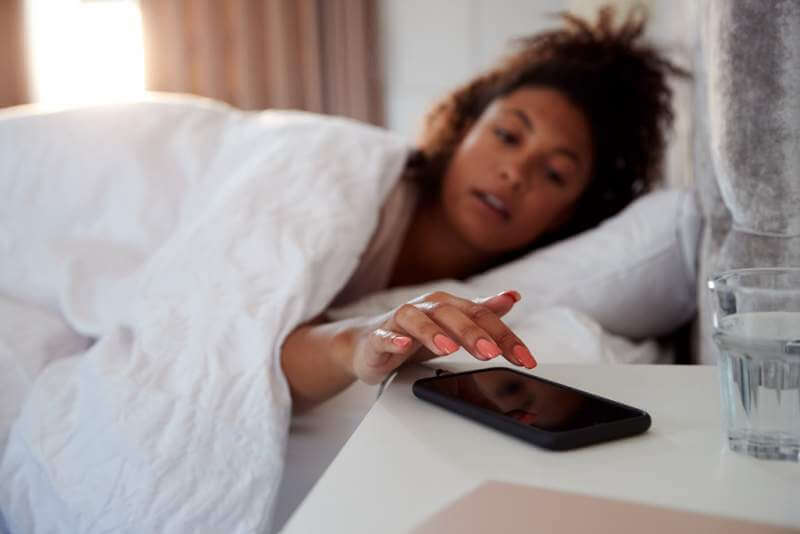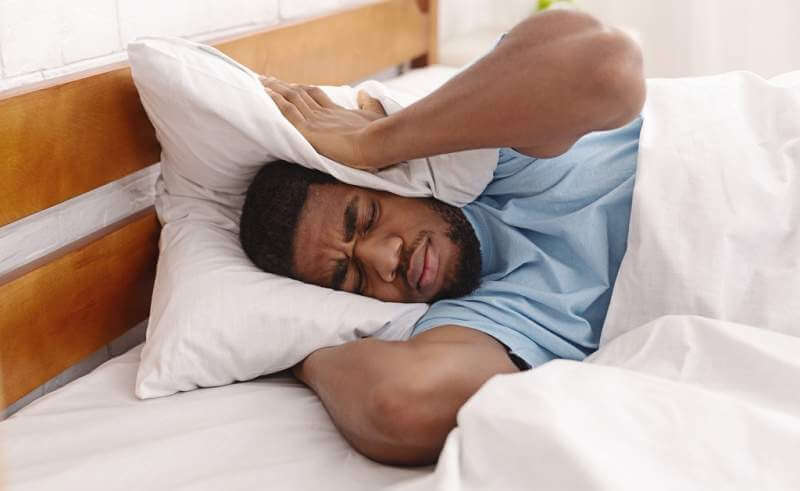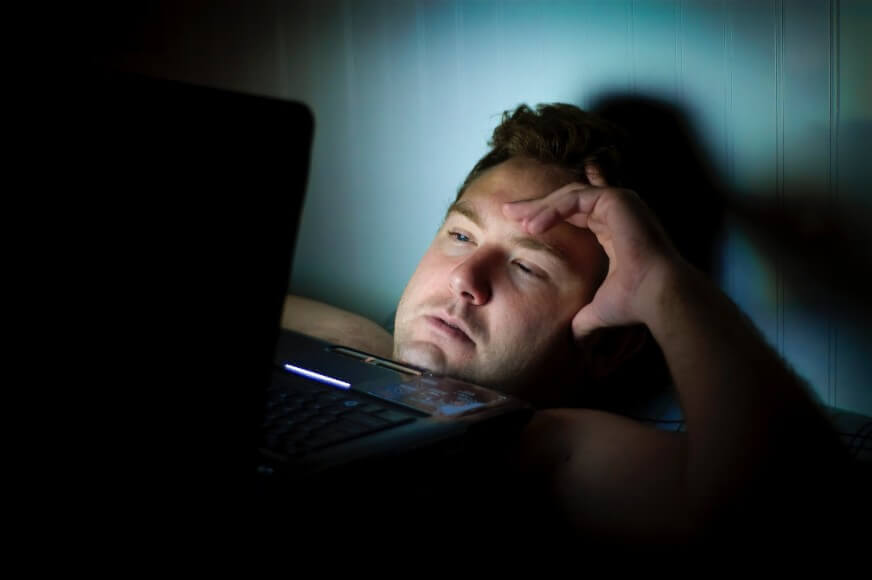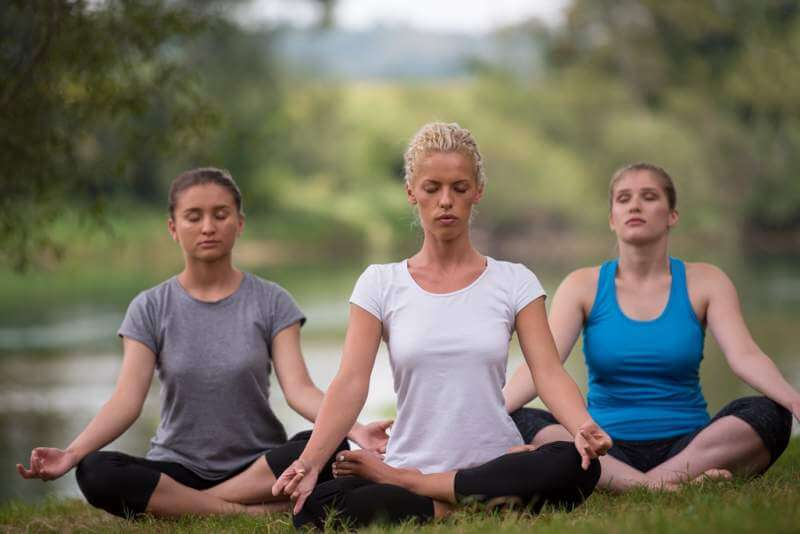Technology can be so fascinating to the point that it can be a double-edged sword. Conventional wisdom suggests—as does theoretical studies—that technology can be potentially disruptive to a very important mechanism of the human body: our sleep. Electronic gadgets such as laptops, smartphones, and tablets can hinder the human body, specifically the brain, to have quality sleep when used around bedtime.
Medical research has proven that the blue light emitted from the screens of the gadgets we use every day can have negative effects on our sleep. Aside from digital eyestrain, blue light emissions can cause our brains to actively function and stay awake longer when it’s time for our bodies to rest.
But here’s the contrasting effect: sleep-deprived customers shouldn’t call off their gadgets yet. When used appropriately, technology can bring a lot of benefits for those who are having a hard time getting that elusive good night’s sleep. We list down four ways technology can improve our slumber.
SLEEP TRACKERS

In two studies conducted by the University of California – San Francisco and health services startup Cardiogram, researchers found that wearables like Apple Watch and FitBit can actually detect abnormal heart rhythms with cutting-edge accuracy of 97%. These devices can also detect sleep apnea, a potentially life-threatening condition where users stop breathing in their sleep, with 90% accuracy. In the U.S., eighty percent of the 22 million estimated cases of obstructive sleep apnea go undiagnosed, according to the American Sleep Apnea Association.
With sleep trackers, wearers can fully understand their sleep patterns, such as how many times they wake up, their motion during sleep, and if they achieve a healthy length of deep sleep which is what the body needs to fully repair damaged cells.
The good thing is, sleep wearables generally come with a built-in app which you can install on your smartphone. Many apps can generate a well-document sleep analysis that you need for a better understanding of your sleeping habits. Others let their doctors know of these results for medical diagnosis.
WHITE NOISE

Some of us may be living in a noisy environment, like a roadside townhouse or an apartment block near a busy business district. But just because the world itself can’t catch a break doesn’t mean that sleep needs to be outside of your control, too.
White noise is a noise that fights noise. If that ever made sense, here’s a simple explainer: for light sleepers, even an easy creak can wake them and disrupt their sleep. Listening to white noise at night can help block out disturbing noise. So if you’re a light sleeper and you have trouble falling asleep because of a noisy environment, white noise can mask that annoying sound.
Technically, white noise is a consistent noise that comes out softly and evenly across all frequencies. Today, thanks to modern tech, you can download apps on your smartphone that play white noise on request. Home speakers like Amazon Echo or Google Home offer a range of white noise choices—the sound of rain falling on the porch, the sound of a distant thunderstorm, gentle nature sounds, or the sound of soft static.
BLUE LIGHT FILTERS

We’ve mentioned blue light earlier, but what is it, actually? The problem with blue light is simple: it’s an artificial light that signals our brains to stay awake, overriding our body’s natural clock that dictates bedtime. Because our brains and bodies are reliant on “signals,” blue light messes it up by inherently feeding us misinformation. This override of the natural tendencies of the brain is called digital eyestrain.
Where do we usually contact blue light? Yep, you might be using it right now. Smartphones are the leading cause of digital eyestrain caused by blue light. But if it’s part of your routine to check work emails, peruse the web, or do other tasks using your computer or mobile device, there is help available to curb the effects of artificial blue light.
Screened devices usually have this feature called “night mode” or “dark mode” (Messenger, anyone?) that shifts display colors to the warmer end of the color spectrum during the evening hours. Synchronize this feature with blue light filters and you can actually overturn the negative effects of your screens—warm colors coupled with blue light filters can stimulate your brain to relax and have a good night’s sleep.
MEDITATION EXERCISES

Smartphone apps like Headspace can help the sleepless clear their mind and improve their sleep habits. Meditation apps also help in reducing stress levels while increasing focus via gentle, easy-to-learn exercises. Interestingly, podcasts are fast becoming a tool for meditative practices.
Podcasts are a new form of educational entertainment. There are thousands of useful podcasts made for a specific topic—home economics, automobile care, pet grooming and more. Of course, there podcasts intended for improving sleep quality.
If you have trouble relaxing before you go to bed, look into meditation or deep breathing podcasts that can help you slow down and relax your mind while releasing built-up tension. The best thing? You can play podcasts on any device with the screen turned off, to enjoy getting into sleep without the blue light effect. There is a growing need to improve sleep quality within a modern and fast-paced society. City dwellers are the most afflicted—about 46% according to a study conducted in 2016. In some way or another, we have taken for granted our need for sleep and lost respect for the central place that sleep should have in our lives. Self-improvement and health service companies are pushing the innovation for a dedicated field of tech for sleep quality improvement.
Technology—mimicking a double-edged sword—can both help and hinder our sleep, depending on how it’s applied. It is the screens that we peruse every day that can amplify the negative effects. But if we find creative ways to improve our sleep, we can easily embrace life in a modern, fast-paced world without compromising the quality of our sleep.
Author Bio:
Japs Buidon is a researcher from Beddingstock, a company who’s into selling gel memory foam mattress. He likes to do mountain climbing and aquaphonics gardening on his free time.
